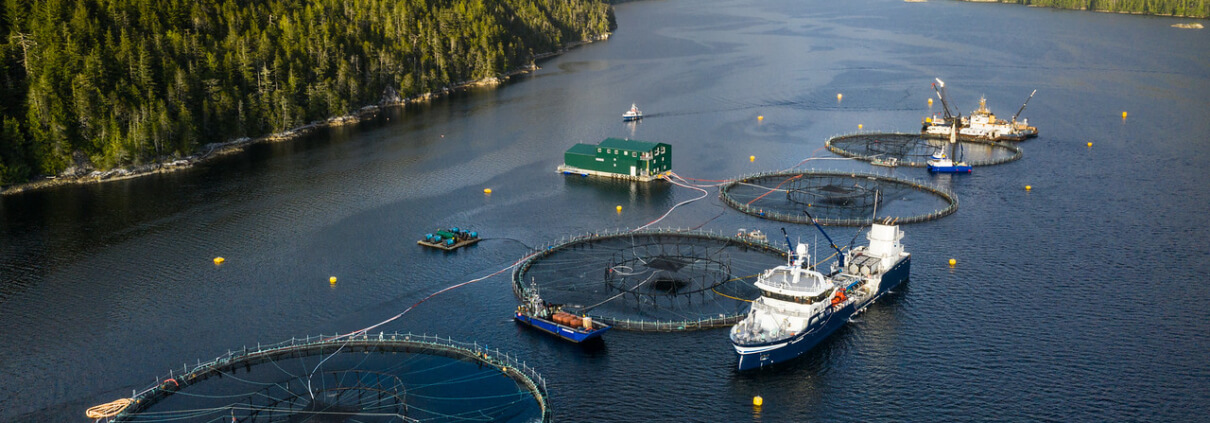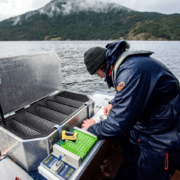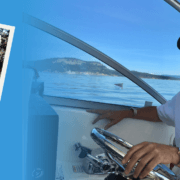Open-net pen salmon farms pose risks to wild stocks
PSF applauds decision to discontinue Atlantic salmon farm licences.
A decade of rigorous, peer-reviewed research undertaken by PSF and partners has outlined numerous risks open-net pen salmon farms pose to wild Pacific salmon through the amplification and transfer of harmful parasites and pathogens.
On Feb. 17, 2023 the Government of Canada, under the leadership of the Hon. Joyce Murray, Minister of Fisheries, Oceans and the Canadian Coast Guard (DFO), announced the decision to reduce risk to wild Pacific salmon by discontinuing 15 licenses for open-net pen Atlantic salmon farms in British Columbia’s Discovery Islands.
“The state of wild Pacific salmon is dire, and we must do what we can to ensure their survival. This was a difficult but necessary decision. By taking an enhanced precautionary approach in the Discovery Islands area, the Government of Canada will help ensure the well-being of wild Pacific salmon for our children and grandchildren,” says Hon. Murray.
PSF is grateful to all who took part in the consultation process in support of this necessary and scientifically grounded decision.
“The PSF Salmon Health team has regularly offered measured scientific advice, based on peer-reviewed research, to Minister Murray and others who seek it. The published evidence consistently reaffirms the potential risks that open-net salmon farms pose to wild Pacific salmon and the need for a highly precautionary approach,” says Andrew Bateman, PhD, manager of PSF’s Salmon Health Program.
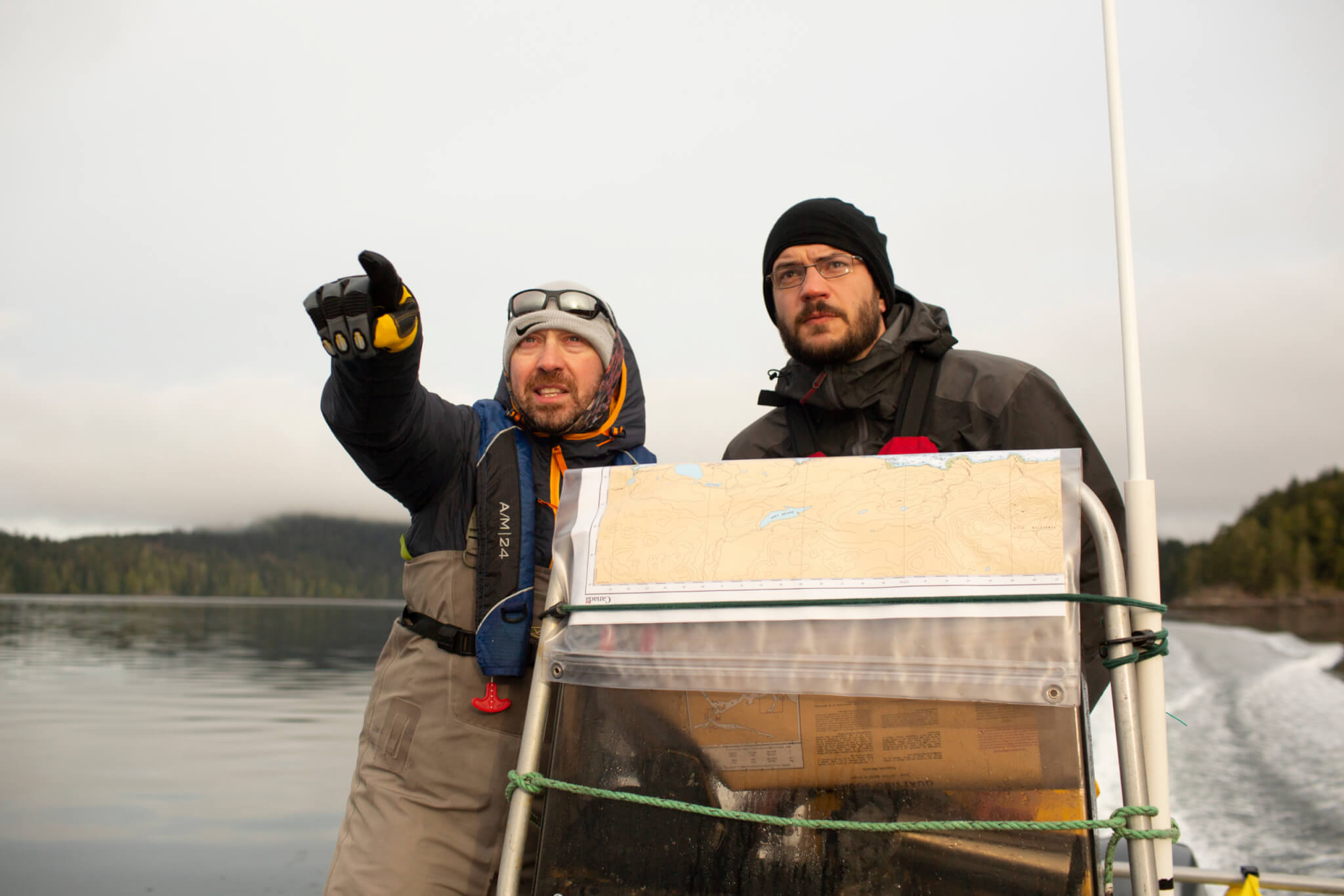
PSF’s Emiliano Di Cicco and Andrew Bateman. (Amy Romer)
The Government of Canada’s decision is a consequential step forward in the collective efforts to reduce the various risks to wild Pacific salmon. The move will support broader recovery efforts of wild Pacific salmon populations that are experiencing historic declines — such as Fraser River Sockeye. As Pacific salmon face a complex suite of stressors, due to rapid and intensifying impacts of climate change as well as human impacts on their ecosystems, this decision directly addresses a risk factor that is under immediate human control.
Parasitic sea lice risk
One of the ongoing specific risk factors at play in the context of open-net pen salmon farms is that of parasitic sea lice.
Members of the PSF Salmon Health team have contributed to the large body of research in B.C. that shows a direct connection between salmon farms and levels of sea lice on nearby juvenile wild Pacific salmon. That relationship has been well established for decades, bolstered by the fact that sea louse levels on wild juveniles decline when on-farm sea louse levels are managed effectively. Further peer-reviewed science shows that sea louse infestations are tied to population declines in certain Pacific salmon species.
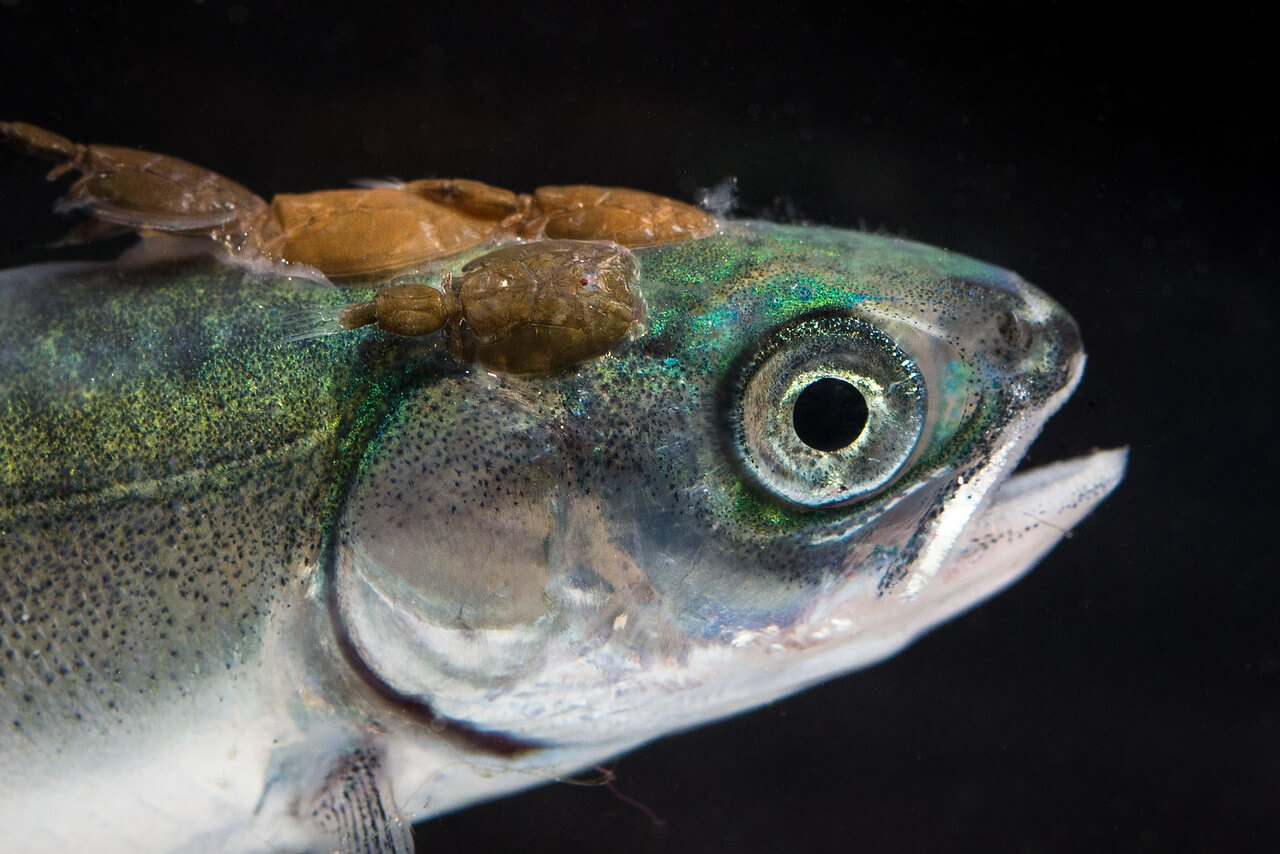
Sea lice from salmon farms pose a threat to numerous wild salmon populations. (Tavish Campbell)
Unfortunately, DFO published a report in January that claimed to show no direct connection between sea lice on farms and sea lice on juvenile wild salmon.
“We are deeply troubled by the quality of science advice in this report,” says Bateman.
After reviewing the report thoroughly, he and a diverse group of 15 other professors and researchers wrote to Hon. Murray to express professional dismay at serious scientific failings, request access to the data involved, and suggest ways to improve the science.
“Our concerns are with both the technical conclusions of the report and the process involved, which included no truly independent scientific review or input,” says Bateman. “In fact, we showed that by taking the report’s analysis just one step further, its own findings demonstrate a clear overall connection between farm lice and lice on wild salmon.”
PSF has long called for the minister to assemble an independent panel of science experts from outside of government to provide the best possible scientific advice. This report is an example of why such advice is critical.
We all depend on the health of wild Pacific salmon, and their future depends on wise decisions — like discontinuing open-net pen Atlantic salmon licenses in the Discovery Islands.

